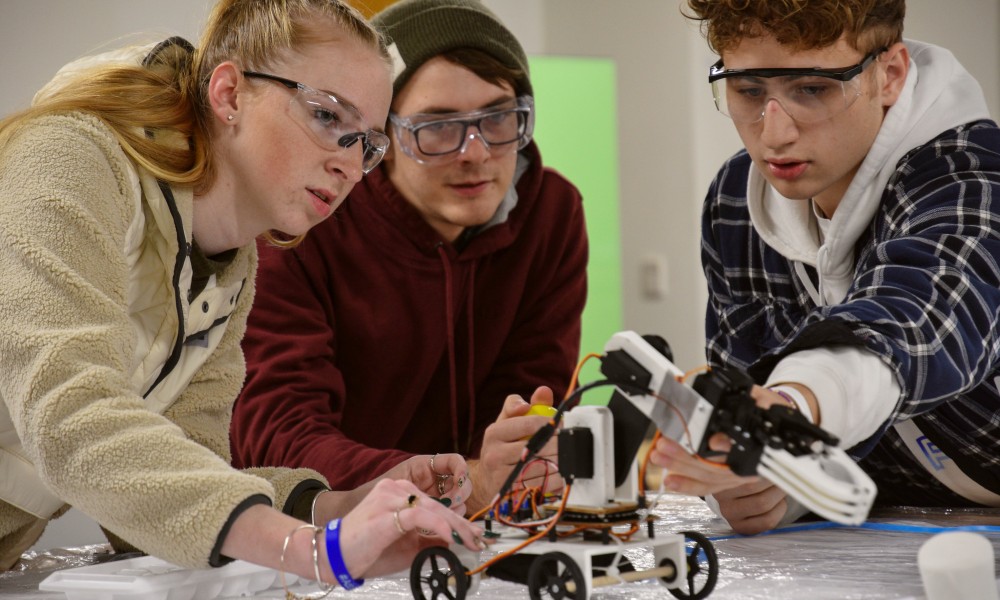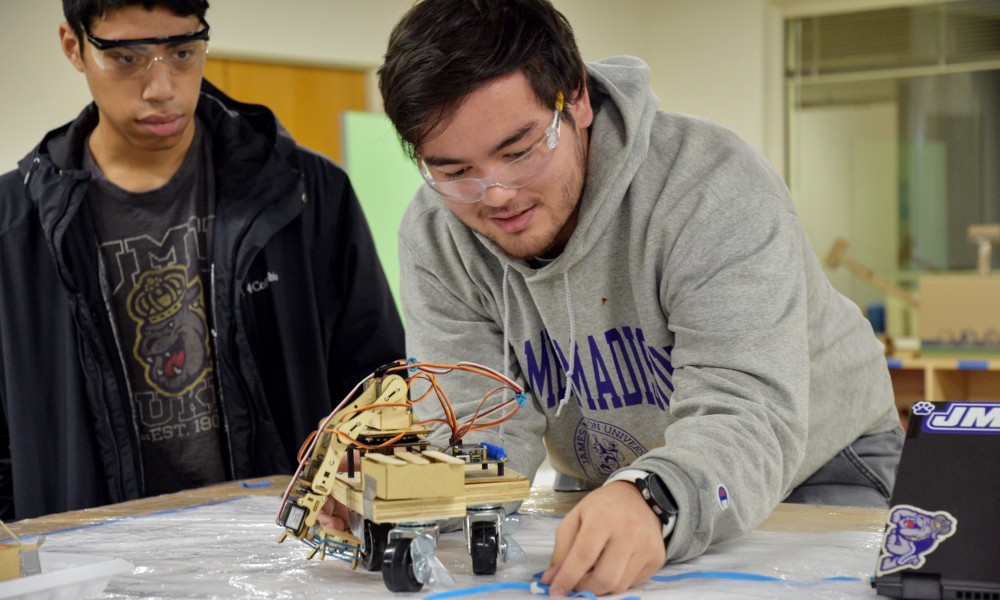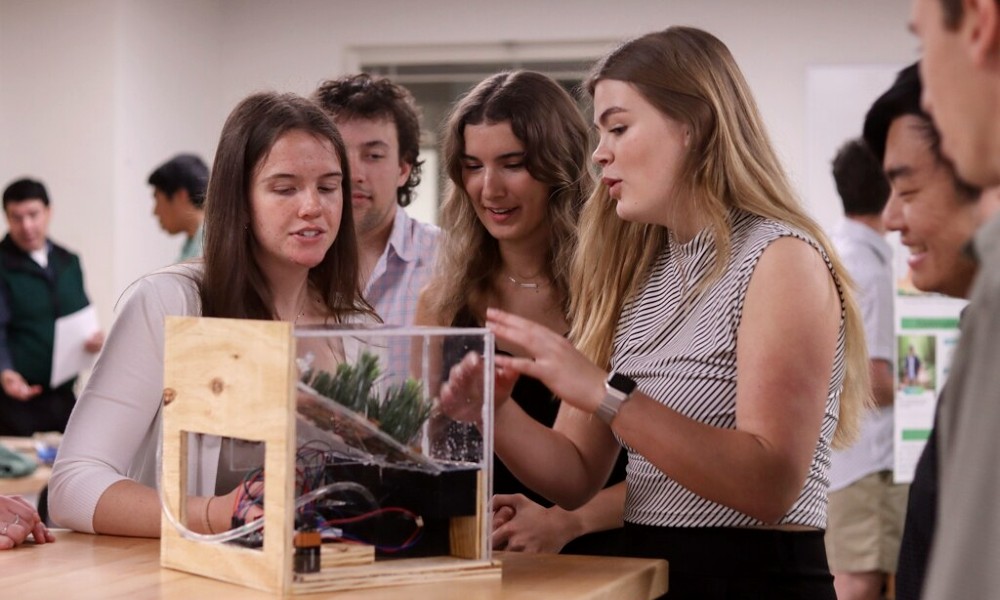Empowering engineers: An innovative approach to experiential learning
News
SUMMARY: The College of Integrated Science and Engineering has always been at the forefront of innovation, and its Engineering Department is no exception. This past year, engineering professors Daniel Castaneda, Jason Forsyth and Kyle Gipson made significant changes to the sophomore-year project, transforming the learning experience and better preparing students for real-world challenges.
Historically, JMU’s Engineering Department has required sophomore students to engage in a year-long project spanning two courses, ENGR 231 and ENGR 232. This project gives students experience in applying the engineering design process in a practical, hands-on manner.
Two of the most notable projects have been the human-powered vehicle and the instrumented buoy. In partnership with Overcoming Barriers, the human-powered vehicle project involved students designing, testing, and building bicycles for clients with physical disabilities. In collaboration with Northrop Grumman, the instrumented buoy project focused on designing and developing an instrumented buoy to monitor the ecological health of the Chesapeake Bay Watershed. Both projects honed students’ technical skills and instilled a strong sense of environmental responsibility.
With increased student enrollment and the desire to enhance flexibility and student success, the Engineering Department split the year-long project into two distinct semester-long projects. This new structure allows for a more focused and flexible approach, accommodating the varying needs of students and faculty.
Designing for Healthcare – An emphasis on product design
During the fall semester, students in ENGR 231 explored the engineering design process, specifically focusing on the needs of at-home healthcare workers who assist elderly patients. The course introduced students to research and the intricacies of the product design process to aid these caregivers. Using stand-ins like soft marshmallows, raw eggs, and golf balls, students demonstrated how their prototypes handled delicate tasks such as moving bedding materials and assisting frail patients. This project teaches technical skills and emphasizes the importance of designing with empathy and understanding for the end user.

Innovating for Climate Change – An emphasis on human-centered design
During the spring semester, in ENGR 232, Castaneda, Forsyth and Gibson collaborated with Kelly Giles from the JMU Libraries to enhance students’ research skills. Students learned to conduct thorough engineering research, navigate databases, and analyze demographic data to understand the diverse needs of communities. Focusing on broader societal impacts, particularly climate change in the Shenandoah Valley, students explored how recurring flooding, extended wildfire seasons, and deteriorating air quality impact humans, wildlife, and local ecologies. The project culminated in creating an interactive, sensor-control-based public exhibit to educate young learners about the risks climate change poses to the region. This open-ended project encouraged students to explore human-centered design, considering community wants and needs to develop meaningful solutions.

Students and faculty enthusiastically welcomed the change. Jake Miller, an Engineering student who completed the courses, emphasized the importance of soft skills in teamwork: “Communication can be the beginning and end of a team’s problems. Accurately conveying expectations and being open to team members’ ideas can take your project further than you think.”
“These new semester-long projects really epitomize the strengths of the JMU Engineering program,” Castaneda said. “In the fall semester, our students develop a firm understanding of engineering design, and in the spring semester, they come to realize that whatever they design has to be viable in a socially and ecologically complex world. This new sophomore-year project experience has really opened up new and exciting opportunities for our students to apply knowledge in a hands-on way to make the world a better place through responsible innovation.”
